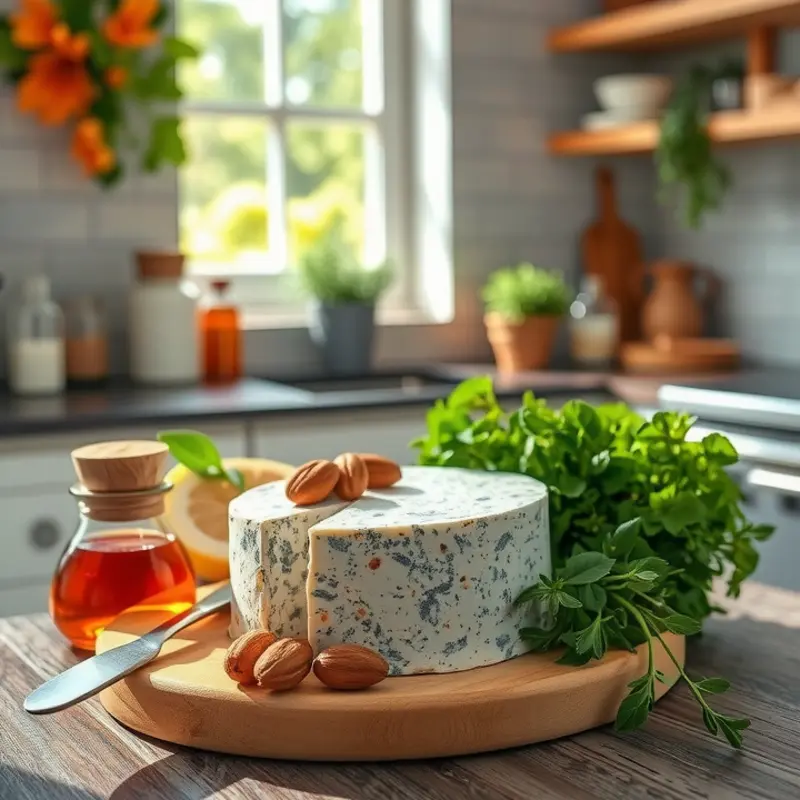With rising awareness of dietary preferences and allergies, many home cooks are seeking nutritious alternatives to traditional dairy products. Seed-based dairy replacements provide a fantastic solution, offering creamy, flavorful options that can easily be incorporated into everyday cooking. From milk and cheese to yogurt, these substitutes cater to plant-based diets and those with lactose intolerance, enhancing the taste and nutrition of your dishes without sacrificing convenience. Explore the world of seed-based dairy replacements to enrich your kitchen creations.
Versatile Seed Milks: Creamy Alternatives for Your Beverages and Recipes

Seed milks present an intriguing world of options for those seeking dairy alternatives. Not only are they versatile, but they also carry a unique nutritional profile compared to traditional dairy. Seeds such as hemp, pumpkin, and sunflower are packed with essential nutrients and can be transformed into creamy, rich milk alternatives.
Hemp Seed Milk
Hemp seeds produce a creamy and slightly nutty milk with a nutritional advantage. These seeds are high in omega-3 fatty acids, providing heart health benefits. Hemp milk is easily made by blending 1 cup of hemp seeds with 4 cups of water and straining it through a fine mesh or cheesecloth. Its flavor pairs well with smoothies, coffee, and baking recipes that require a touch of creaminess.
Pumpkin Seed Milk
Pumpkin seeds, or pepitas, offer a vibrant green milk that’s rich in magnesium and zinc. This milk lends a nutty flavor to beverages and recipes. To make pumpkin seed milk, soak 1 cup of seeds overnight, then blend with 4 cups of water. Strain and enjoy it as a base for soups or as a flavorful addition to cereals. The natural green hue adds an aesthetic appeal.
Sunflower Seed Milk
For an economical choice, sunflower seed milk stands out. It is high in vitamin E, an antioxidant that supports skin health. Create sunflower seed milk by soaking 1 cup of seeds overnight, blending with 3 cups of water, and straining. Its mild flavor makes it a perfect ingredient for savory sauces or as a substitute for dairy in baking.
Flexibility in Recipes
These seed milks are not one-size-fits-all. Each variety brings its unique flavor and texture, making them suitable for different culinary applications. For a creamy texture in soups or stews, hemp milk’s savory profile works well. If a recipe requires a nutty undertone, pumpkin seed milk is ideal. Sunflower milk can tone down the sweetness in desserts.
Nutritional Considerations
When substituting seed milks, consider the nutritional impact. While they provide healthy fats and essential nutrients, they may lack in certain vitamins and proteins found in dairy milk. It’s crucial to ensure your diet compensates for these gaps. Explore practical ingredient batching to easily integrate seed milks into your meal preparation.
Creating homemade seed milks allows for endless customization and ensures a fresh product free from added sugars or preservatives. By simply adjusting the ratio of seeds to water, you can control the milk’s thickness and strength, tailoring it to a variety of dietary needs and culinary uses.
Seed milks offer delightful and nourishing alternatives in kitchens. Embrace the versatility they bring to traditional dairy-based dishes by experimenting with different seeds and ratios. This expansion of options not only diversifies your diet but also supports sustainable and conscious eating habits.
Nutty Cheeses and Creamy Yogurts: Crafting Dairy-Free Delights

Exploring the culinary possibilities of seed-based cheeses and yogurts opens a world of rich, creamy textures and flavors. These milk-free alternatives offer endless variability, making them suitable for different diets. The key is harnessing the full potential of seeds like sunflower, pumpkin, and sesame.
To craft a nutty cheese, start by selecting a type of seed. Sunflower seeds are mild, while sesame seeds offer a hint of bitterness. Soak the seeds overnight to soften them; this step is crucial as it aids in breaking down the seeds for a creamier texture and increases digestibility.
Once soaked, blend the seeds with a little water until smooth. For a thick, spreadable cheese, add less water. Incorporate nutritional yeast for a cheesy flavor, a pinch of salt, and a splash of lemon juice for tang. For a touch of creaminess, blend in some soaked cashews. You can play with flavors by adding herbs like dill or chives, or spices like smoked paprika. The result is a versatile cheese perfect for spreading on crackers or sandwiches, or rolled into flavorful balls for salads.
Crafting seed-based yogurt requires a similar approach but focuses more on fermentation. Begin by blending soaked seeds with water, creating a smooth base. The fermentation process is where the magic happens. Introducing probiotic cultures aids in developing tartness and a yogurt-like consistency. You might find helpful advice on choosing the right cultures in our non-dairy probiotics guide.
Once the seed mixture is combined with probiotics, let it sit in a warm spot for 6 to 12 hours. The duration depends on your preferred taste; longer fermentation increases tanginess and thickness. Stir occasionally, and watch as the transformation unfolds. After fermentation, sweeten your yogurt with natural options such as maple syrup or pureed dates, and enhance flavor with vanilla or fruit purees.
These seed-based creations are not just alternatives but culinary stars in their own right. Use your nutty cheese as a delightful addition to antipasto platters, or blend it into creamy sauces for pasta. Enjoy seed-based yogurt as a breakfast bowl with granola and fresh fruits, transforming a simple meal into something nourishing and unique.
The beauty of seed-based cheeses and yogurts lies in their customization. You are free to experiment with flavors and textures, making them a daily staple or special treat. With a little knowledge and patience, you can turn seeds into gourmet, dairy-free delights that enrich your culinary repertoire.
Final words
Seed-based dairy replacements offer an exciting and nutritious alternative for home cooks. Whether you’re looking for milk, yogurt, or cream, these seed-based products provide rich flavors and essential nutrients. With an array of options like sunflower, pumpkin, and sesame seeds, you can easily customize your recipes to match your dietary requirements while adding unique tastes. Embracing these alternatives not only broadens your culinary repertoire but also supports a healthier lifestyle. Next time you’re planning a meal, consider these delightful seed-based choices for a nourishing twist on your favorite dishes.







